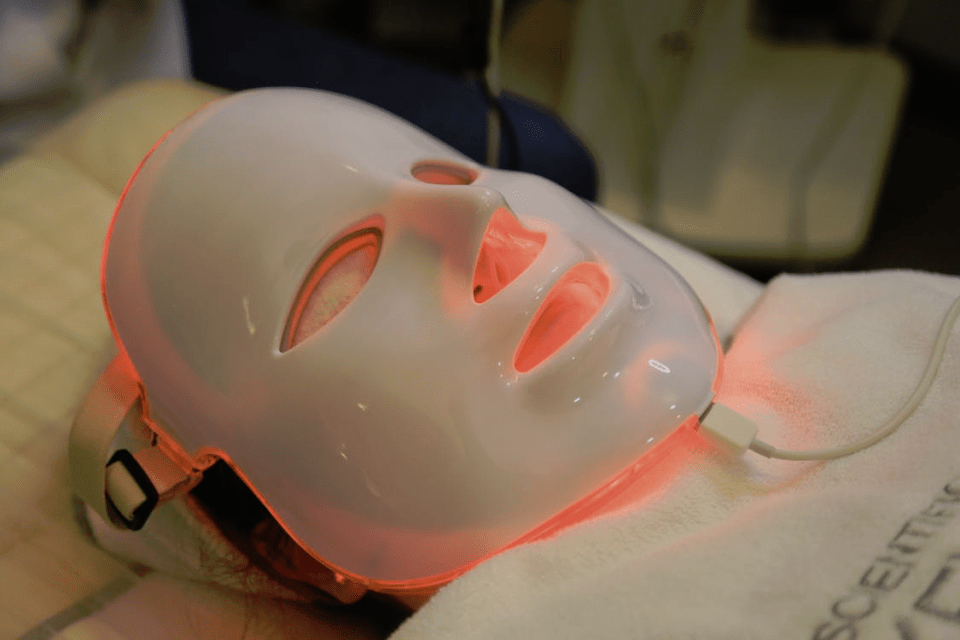Red light therapy (RLT) is becoming one of the year’s most talked-about health and beauty trends. Whether it’s skincare or pain relief, RLT offers a versatile approach to self-care.
If you’re keen to decide whether RLT suits you, stay tuned, and we’ll unpack its benefits, risks, and practical uses.

Understanding the Science Behind Red Light Therapy
Red light therapy works by delivering low-level red and near-infrared light to your skin and tissues. This stimulates mitochondria, the energy powerhouses of cells, promoting repair and regeneration. Clinical studies show it can enhance collagen production, improve circulation, and reduce inflammation.
The process is non-invasive and painless, making it appealing for beauty treatments or recovery needs. The best red light therapy products can provide targeted wavelengths that optimize these effects efficiently. While research continues to explore its full potential, many users already report noticeable improvements in skin health and overall wellness with regular use.
Why Is Red Light Therapy So Popular?
Red light therapy’s popularity skyrockets due to its versatility and accessibility. Once reserved for clinics, affordable at-home devices now make it convenient for daily use. Social media buzz highlights its visible anti-aging results, such as smoother skin and reduced wrinkles.
Celebrities endorse it as part of their beauty routines, while fitness enthusiasts praise its role in muscle recovery. Studies linking RLT to improved wellness outcomes, like reduced joint pain or enhanced healing, boost trust in the therapy. Its appeal lies in being safe, effective for various needs, and backed by both science and satisfied users alike.
What Can RLT Do for You?
Red light therapy is a go-to for those seeking improved skin health. It stimulates collagen production, helping to reduce wrinkles, fine lines, and sagging. Studies also suggest it can improve skin tone by fading scars or hyperpigmentation.
For individuals with acne-prone skin, RLT’s anti-inflammatory effects may help calm redness and support clearer skin. Many users notice a healthy glow after consistent sessions, as the therapy promotes cell turnover without damaging the surface.
Its gentle nature makes it suitable for various skin types while providing visible results over time with minimal effort.
Pain Relief and Wellness Applications of RLT
Red light therapy offers benefits beyond beauty. Athletes use it for muscle recovery, as it reduces soreness and accelerates tissue repair after intense workouts. Studies show that it can relieve chronic pain conditions, such as arthritis, by reducing inflammation deep within the joints.
RLT may also aid individuals with wounds or injuries, accelerating healing by enhancing circulation and promoting cell regeneration. Its calming effects on nerves make it a promising tool for addressing neuropathic pain or tension-related discomforts.
Whether targeting specific concerns or enhancing overall wellness, many appreciate its drug-free approach to managing pain naturally and effectively.
At-Home Devices vs Professional Treatments
At-home red light therapy devices offer a convenient option. They allow regular sessions without the need for scheduling appointments or visiting clinics. These are ideal for maintenance, though they may provide lower intensity than professional-grade equipment.
Clinics, on the other hand, utilise high-powered machines that are capable of treating deeper tissues or larger areas more effectively. Professional guidance ensures tailored care for your specific needs but comes at a higher cost.
Choosing between the two depends on your goals, budget, and available time. Combining both options might even maximize benefits, and regular home use supported by occasional in-clinic treatments can deliver optimal results over time. In conjunction with your skincare routine, the results can be impressive.
Potential Risks, Side Effects, and Limitations of RLT
While red light therapy is generally safe, it isn’t completely risk-free. Overuse may lead to skin irritation or temporary redness. Improper device use could reduce effectiveness or cause mild discomfort.
It’s not suitable for everyone. Individuals with photosensitive conditions or those taking certain medications should consult a doctor before starting RLT.
Results often require consistent use over weeks, and quick fixes aren’t realistic here. Additionally, some concerns, like severe scarring or deep pain, may need complementary treatments for full resolution.
Understanding its limitations helps set reasonable expectations, ensuring a safe and effective use tailored to your individual needs.
Final Thoughts
Red light therapy combines science with accessibility, offering versatile benefits for skin health, pain relief, and wellness. Whether through professional treatments or at-home devices, it’s essential to select high-quality products and consult a healthcare provider. With proper use and realistic expectations, RLT could be a valuable addition to your self-care routine.
comments +